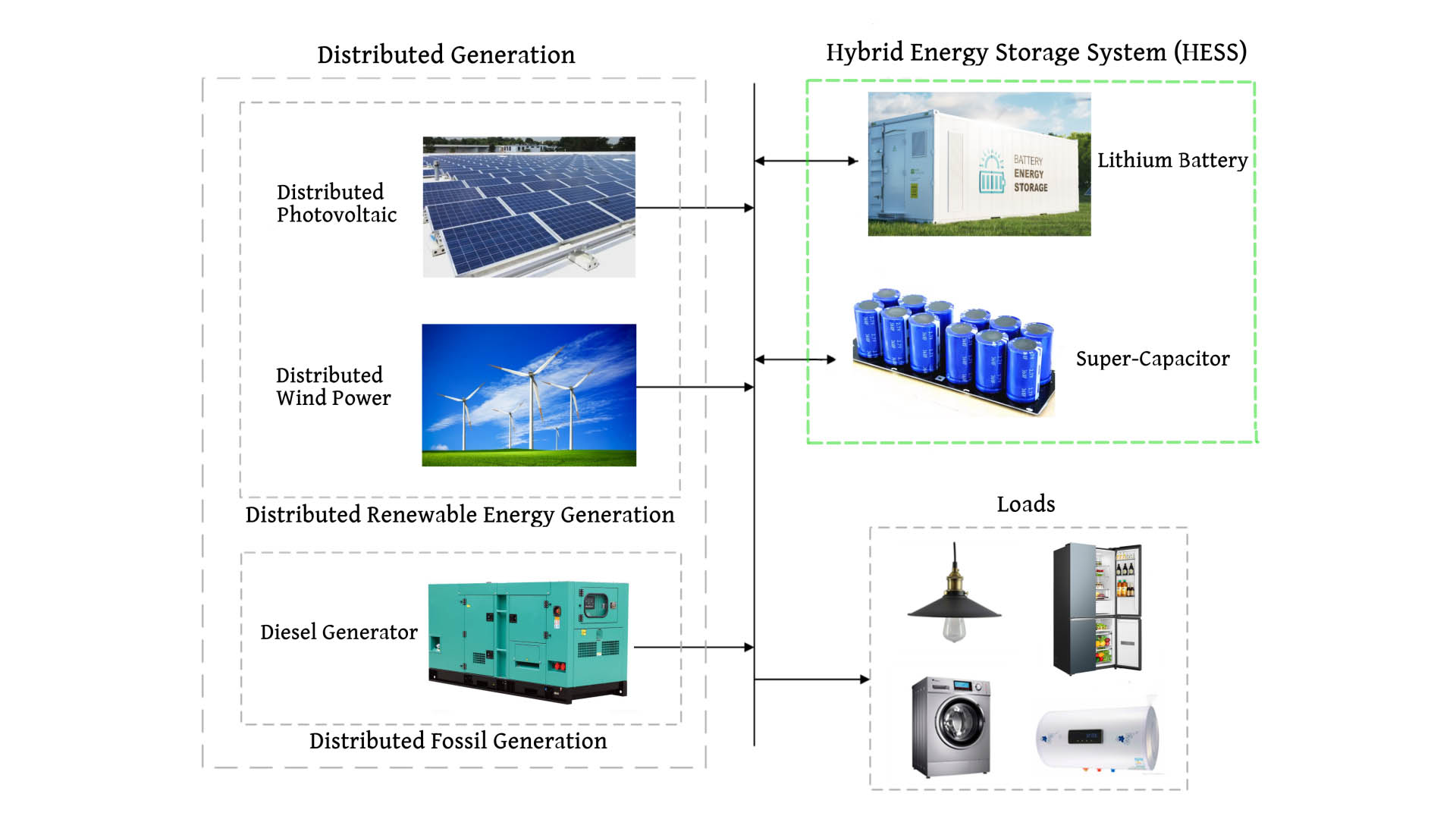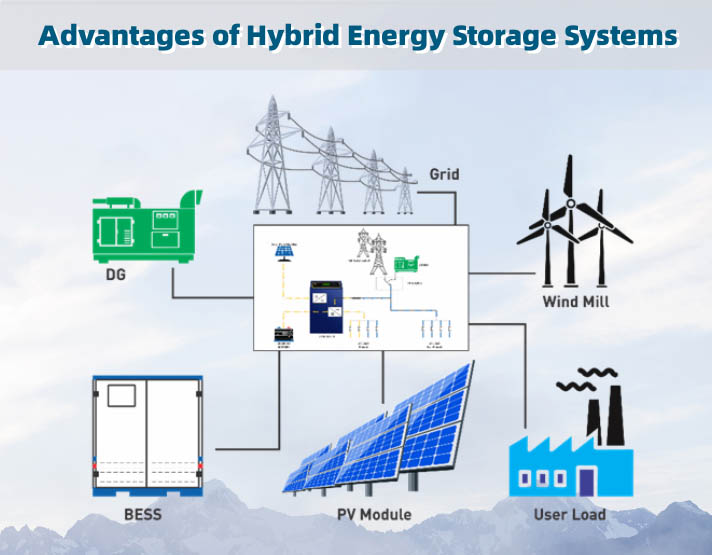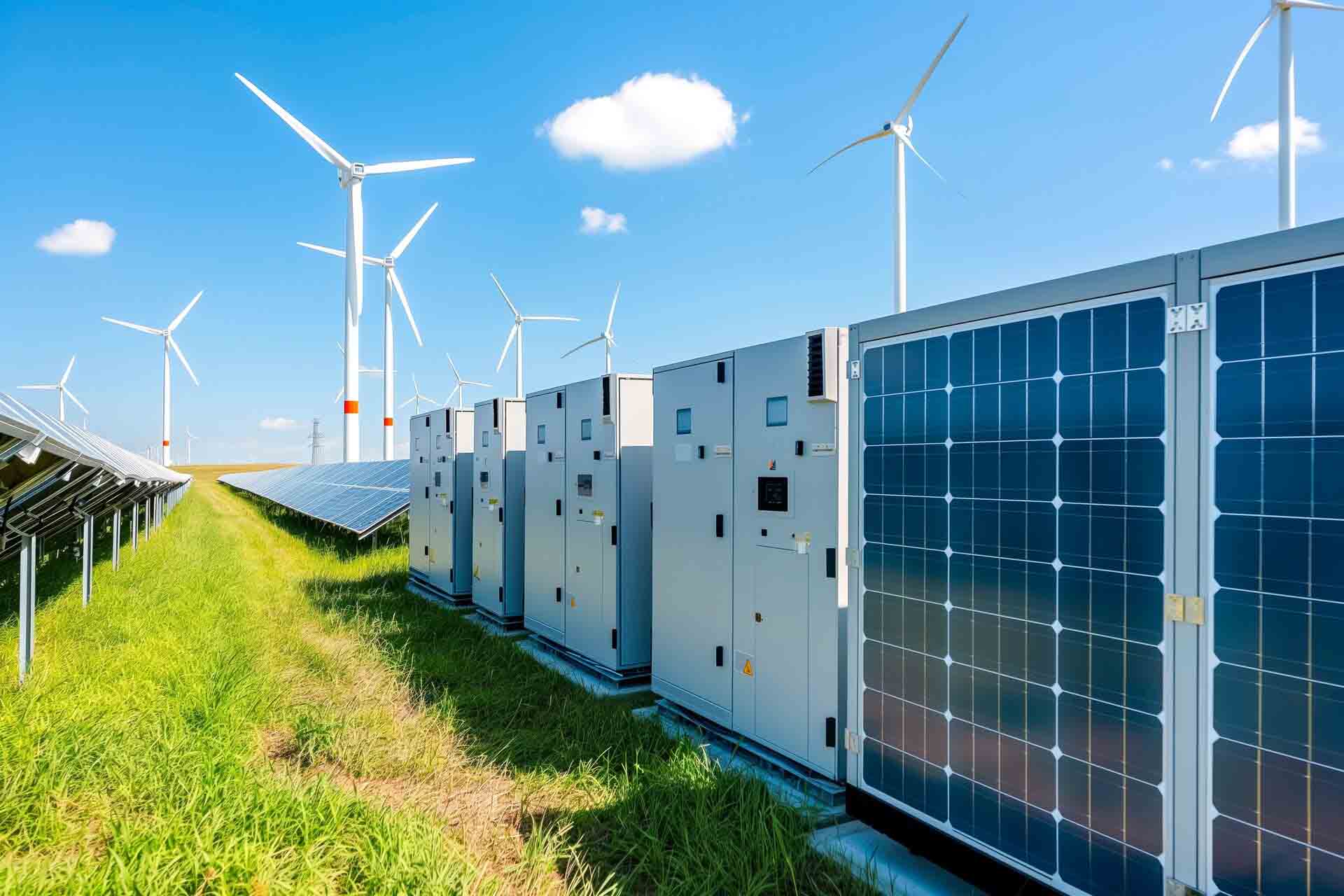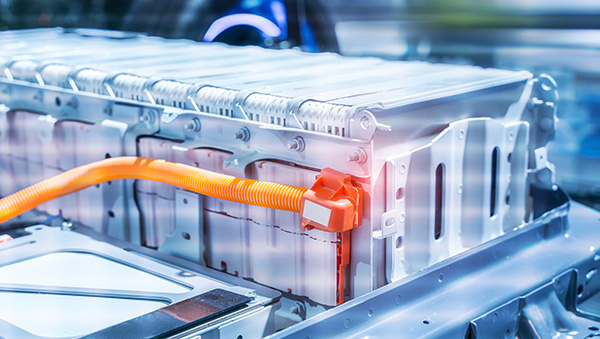A Hybrid Energy Storage System (HESS) combines two or more different energy storage technologies into a single, integrated unit. This powerful approach is specifically designed to overcome the limitations of single-technology systems, making it ideal for managing the variable nature of renewable energy sources like solar and wind. By leveraging the complementary strengths of technologies such as batteries (fast response, high power), super-capacitors or flywheels (long cycle life, high power bursts), HESS provides a more reliable, efficient, and longer-lasting hybrid energy storage solution for storing renewable energy.

1. Types of Hybrid Energy Storage System
There isn't just one type of HESS hybrid energy storage system. Common pairings form the core types of HESS battery system:
- ① Battery + Supercapacitor: Lithium-ion batteries provide sustained energy, while supercapacitors handle rapid power surges and absorption (common for smoothing solar/wind output).
- ② Battery + Flywheel: Similar to above, flywheels excel at very fast, high-power cycles for frequency regulation.
- ③ Battery + Battery: Combining different chemistries (e.g., lead-acid for capacity, lithium for power) optimizes cost and performance.
- ④ All-in-one hybrid energy storage systems integrate multiple technologies plus power conversion within a single, simplified unit for easier deployment.
2. Advantages of Hybrid Energy Storage Systems
The key advantages of hybrid energy storage systems stem from using the right tool for each job:
- ⭐ Enhanced Performance & Lifespan: High-power components (supercaps, flywheels) protect batteries from damaging stress during rapid charge/discharge, extending the overall hybrid battery energy storage system life.
- ⭐ Improved Efficiency: Systems operate each component in its optimal range, reducing energy loss.
- ⭐ Increased Reliability: Redundancy and optimized operation ensure stable power delivery for critical renewable energy applications.
- ⭐ Cost Savings: While potentially higher upfront cost, longer lifespan and reduced maintenance lower the total cost of ownership. All-in-one hybrid energy storage systems further reduce installation complexity and cost.

3. Current Hybrid Battery Energy Storage System Market
The hybrid battery energy storage system market is experiencing rapid growth driven by the global push for renewables. This hybrid energy storage system market expansion is fueled by increasing grid stability needs, falling technology costs, and supportive policies. Hybrid energy storage systems for renewable energy applications are becoming a preferred solution for utilities, commercial & industrial sites, and even large residential installations seeking resilient, long-term energy management.
4. Difference between Hybrid Energy Storage Systems and Hybrid Batteries
It's crucial to understand the difference between Hybrid Energy Storage Systems and hybrid batteries:

Hybrid Energy Storage Systems (HESS): These are large-scale, stationary energy systems (such as those discussed above) designed to store energy, primarily from the grid or renewables, using various technologies such as batteries, supercaps, flywheels, etc. Think of megawatts and megawatt-hours.


Hybrid Batteries: This term usually refers to a single, specialized high-voltage hybrid battery pack found in hybrid or electric vehicles (EVs). These are designed for mobility, providing propulsion power and capturing regenerative braking energy. Hybrid Battery Replacement is a common service for aging vehicle packs, unrelated to stationary grid storage.
In essence, a HESS is a sophisticated, multi-tech platform for grid/industrial renewable energy storage, while a hybrid battery is a single-component power source for vehicles. Understanding what is hybrid energy storage system technology plays a crucial role in building a cleaner, more resilient energy future.
